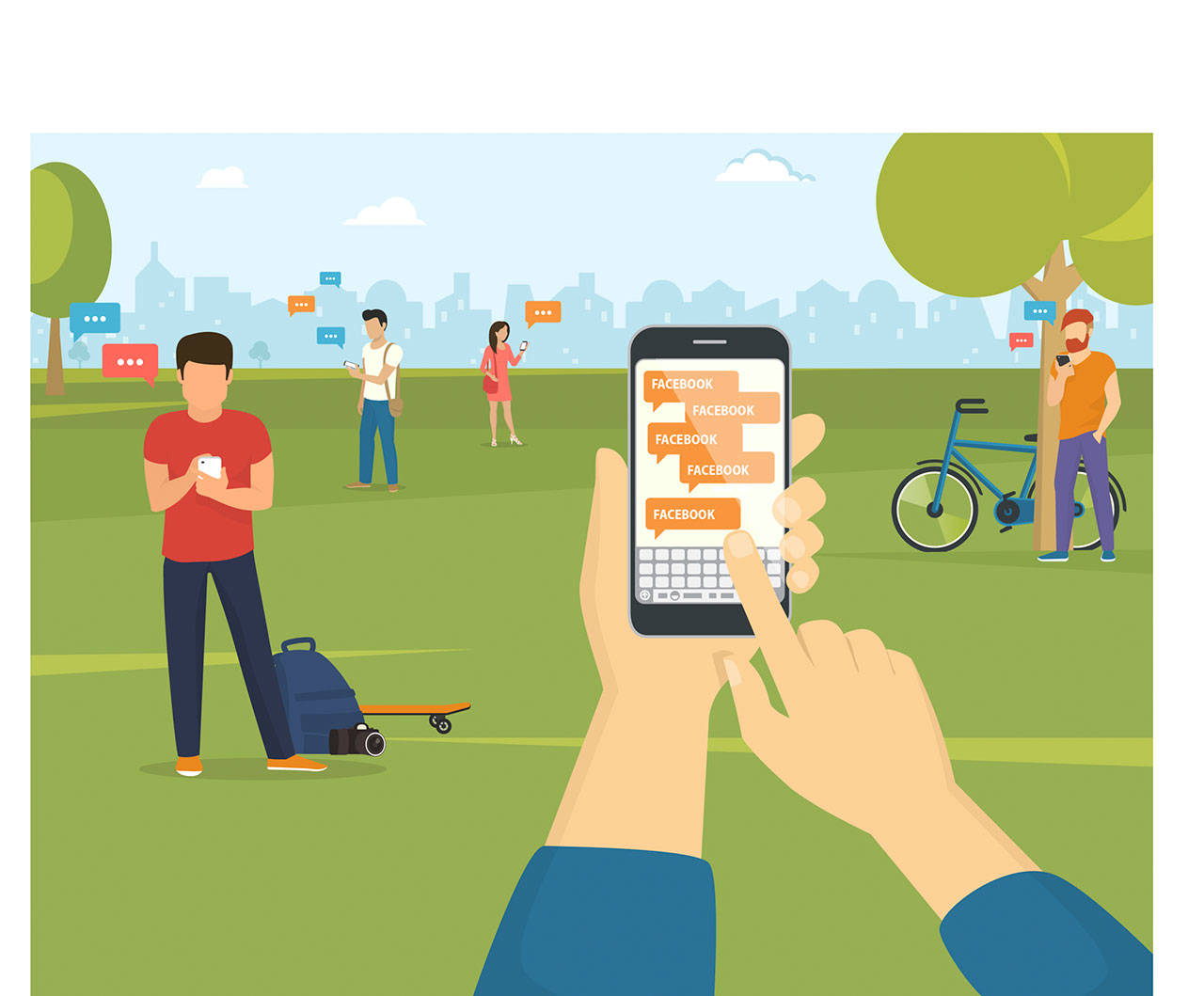It’s certainly an impulse, for some an addiction — not alcohol, not drugs, just that simple electronic click.
In a single moment on Facebook, we can find instant affirmation, something sometimes lacking in our personal relationships.
That’s part of what makes Facebook so hard to break up with.
“People are attached to how many likes they get,” said David M. Levy, a professor in the Information School at the University of Washington.
Surfing the big wave of social media sounds benign enough. But there’s more to it than that.
Social media are designed to take advantage of the gratification they engender, engaging not just our emotions, but our brains’ pleasure pathways.
The part of the brain where pleasure is experienced sends a signal to the front of the brain, “the CEO of our brain, that says, ‘I like that, do that again or get more of that,’ ” said Dr. Dimitri Christakis, a pediatrician and epidemiologist UW’s School of Medicine.
This neurological pathway is set up to reinforce positive behavior, he said. “So that’s not a bad thing.”
But there’s a threshold where it becomes compulsive and addictive, whether the activity is gambling or social media use.
The tipping point is when the desire to engage in an activity pushes out the important activities of daily living, he said.
“When kids prefer to be on social media to the point of not doing their homework, or their grades deteriorate, or they avoid being with friends in real life, that’s clearly becoming a problem,” Christakis said.
Compulsive social media use is so widely recognized that there are now apps to “babysit” people on their screen time, tracking how much it’s used or even allowing you to set time limits. Somewhat ironically, these enforced controls are coming from another electronic media device.
It’s a lot more complicated to cut back or quit social media than mimicking the “just say no,” catchphrase of the 1980s, coined in the hope of discouraging drug use.
In extreme cases, people will go through social media withdrawal. “The compulsion to check it is real,” Christakis said.
This despite the uproar that erupted over the disclosure that personal information of up to 87 million Facebook users had been breached when it was shared without their knowledge with the data mining organization Cambridge Analytica.
It spurred the #DeleteFacebook movement. How many people actually will delete their account — and stay off Facebook long term — is unknown.
“It’s like a lot of things when we get upset, our initial reaction and then do we really follow through or not,” Levy said.
The international furor ignited by the Facebook privacy controversy was a stark reminder that there really is no such thing as “free” when it comes to social media platforms like Facebook. People — more specifically their interests and shopping habits — are tracked and shared with other businesses.
“The scary thing to me is I have very little privacy online anywhere,” Christakis said.
Social media provide an instant way to emotionally check out, to distract ourselves from unpleasant situations, whether they involve boredom, anxiety or stress.
One reason Facebook is so hard to quit is that people use it as a way to stay connected to their network of friends, family, work professionals and community groups.
“For so many people, Facebook has become so much a part of their daily life or habits, it’s like when we get coffee in the morning,” Levy said.
It’s become so interwoven in their lives that it’s hard to imagine changing. “What will you do with your time now if you’re not using Facebook?” he said.
Levy sometimes works with people on how to put more balance in their social media use.
He doesn’t tell them to quit cold turkey, in part because that may not be realistic. Instead, he asks them to consider how else they might spend their time, from going for a walk, playing the guitar or reading a book.
A good first step to reducing social media use is simply to note over time what conditions trigger the urge to use it. “The ability to notice the impulse is the critical first step,” he said.
Will people actually feel better if they cut back on social media use?
There’s some indication their interactions with people may change. A group of kids in a Los Angeles area camp were cut off from screen time for five days. Instead of texting, they were interacting with their friends face to face.
Researches found these kids were better able to pick up on nonverbal social cues — in short, to better read other people’s emotions.
Christakis said there’s a lot missing when we hear more from people in texts than in person, whether that’s with friends or the latest tweet from President Donald Trump.
“You’re not hearing him talk,” Christakis said. “We all talk about how email or text emojis just don’t cut it. They lack tone, texture and the social cues of real human interaction.”
Sharon Salyer: 425-339-3486; salyer@heraldnet.com.
How to quit Facebook
Here are some suggestions from social media specialists on how to cut back on use of social media:
- Remember you don’t have to stop cold turkey. Cut back a little at a time.
- Turn off notifications, if necessary, beginning with just a portion of the day.
- Monitor how much time you spend on social media. It’s often more than you think. Can you use at least some of this time for other hobbies or pursuits?
- If you find it hard to stop using social media, delete one or more of the apps. It can always be reinstalled.
Talk to us
> Give us your news tips.
> Send us a letter to the editor.
> More Herald contact information.

























